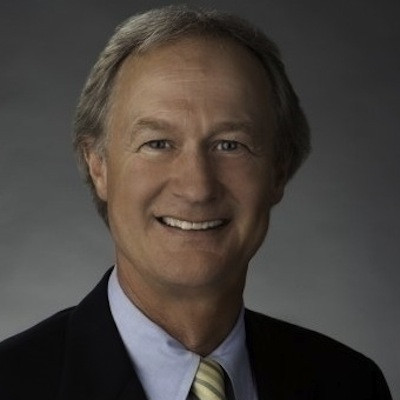Russell Moore: Make Twin River A Destination Resort Casino
Monday, February 03, 2014
Sometimes, hitting rock bottom is a good thing.
Nobody wants to be there, but when you're the cellar dweller you have a chance to assess where things went wrong, and, what’s most important, you can decipher why things went to Hell in a Del’s lemonade cup.
That was my reaction after meditating on the fact that Rhode Island currently once again has the worst unemployment in the nation—higher than even Michigan—at a disgusting 9.1 percent.
Our Tyranny
GET THE LATEST BREAKING NEWS HERE -- SIGN UP FOR GOLOCAL FREE DAILY EBLASTGoLocalProv MINDSETTER™ Don Roach made a great point a few weeks ago in his column when he pointed out that if Rhode Island ever got its unemployment rate, and other key economic rankings to where Massachusetts is—we’d be dancing on Memorial Boulevard. Yet even trying to get ourselves to the middle of the economic pack seems as frustrating as trying to get at table at Twin Oaks on a Saturday night.
Let me put it another way. A person who sits on the couch for 15 hours a day and gorges himself on junk food—assuming he isn’t stupid—knows that if he ever wants to lose weight, he needs to try something different. Yet Rhode Island doesn't seem to be trying anything different.
We're staying the course and were living under the tyranny of low expectations.
Wishing and Hoping
The Rhode Island economy is like an unhealthy person. And our leaders seem to think that minor tweaks or simply doing the same things we’ve always done while wishing and hoping things will get better is an acceptable course of action. Like the lazy, overweight person who refuses to change his behavior, the economic status quo clearly isn't working for Rhode Island.
I have plenty of respect for Senate President Teresa Paiva Weed and House Speaker Gordon Fox. Both are intelligent, well meaning leaders have the best interests of the state at heart. But let’s face it, the economic reforms of 2013 left something to be desired. Merely changing the name of the bureaucracy that is the RI Economic Development Corporation isn’t going to cut the mustard for a state that is in so desperate need of an economic upheaval.
And believe it or not, it’s hard to blame Governor Lincoln Chafee for our economic malaise. (Be patient and hear me out on this one.)
When he campaigned for Governor in 2010, Chafee never laid out any specific economic proposals other than a plan to raise sales taxes without cutting any taxes to offset them. And we elected him anyways because we liked his dad and he was friendly with President Barack Obama. Love him or hate him, he never really promised to address the economy outside of focusing on our “assets.” And he hasn't.
Time to be Bold
The whole no vision thing has been a disaster. Rhode Island’s economy is stagnant, and the state is in a position where it needs to take bold, decisive, and, dare I say it, risky action to jump start its economy. The beauty of the situation is that there isn't much inherent risk in changing things when you’re ranking last in almost every major economic bellwether.
To their credit, the Rhode Island Center For Freedom and Prosperity has put forward a proposal that certainly would spur economic development—eliminating the sales tax. I give the organization credit for coming up with an idea to shake things up and having the courage to bring it forward.
Incentivize Work and Production
But I disagree insofar as I think Rhode Island could eliminate a different tax. If tax cutting is the answer to spur economic development, and I agree that it is, why not phase out the income tax instead of the sales tax? Doing so would encourage and incentivize production and work instead of consumption.
A 0.0 percent income tax would attract people who like to work and build businesses to live in RI. While we're at it, we should also repeal the estate tax, which would encourage people to die here instead of moving somewhere else to protect their assets.
Further, one of the things I find most interesting about Rhode Island is how much people who don’t live here like the state. To think about it, I’ve seldom, if ever heard someone who isn’t from Little Rhody say a bad word about us. On the contrary, and I’m probably as guilty as anyone here, it’s our natives who are always complaining.
(How can you blame us, the residents are the people who have to put up with all the corruption, incompetence, and economic malaise that accompanies our great state.)
Build a Monte Carlo
Given those facts, it’s not surprising that we’re attractive tourists. Tourism and entertainment can replace manufacturing and provide the jobs we need to rebound economically. Newport, Narragansett, Providence, and so many other communities offer great restaurants, unbelievable scenery, and awesome arts scenes. Rhode Island should do even more to market these tourist destinations.
Further, we should either make Twin River a destination resort casino, or build our own resort style casino, or both—and quickly. We need our own Monte Carlo. If done right, it could bring in even more revenue to our state’s coffers. And what’s best, that revenue would be from out-of-staters instead of Twin River, which predominately milks revenue from in-state residents—which is less of a boon to our budget.
In other words, Rhode Island should become the Monaco of the East Coast of the USA. If we didn’t have an income tax, people would actually want to reside here full-time as opposed to just visiting. Instead of a Flight of Earls, we’d have an influx of them. That's a good thing. Earls have money and they spend it. They make great customers.
Just Say "Yes"
Here's the question the naysayers throw at reformers who propose bold solutions like cutting taxes. Picture someone dressed like an assistant manager at Benny's with the $2 dollar tie and white dress shirt saying in the whiniest voice possible, "Where are you going to get the lost revenue?"
Here's the answer: we’d gain a huge chunk of extra revenue by all the economic activity our state would receive by people flocking here thanks to our lack of income taxes. We could hike sales taxes in the short term to make up for any revenue shortfalls created by the income tax phaseout. In the long run, the increased economic activity would allow the state to then scale back those taxes when the economy becomes awesome.
By getting ahead of the curve and legalizing, regulating, and taxing marijuana, we could add an additional chunk of revenue to help make up for the income tax phase out. That too, would increase tourism---and recreational marijuana users would come to RI and spend money on more than just drugs. In other words, just say yes.
And yes, my plan would rely on cutting out the waste, fraud, and abuse in government that politicians talk about but seldom address.
It’s pretty easy to sit back, criticize plans of people who have offered solutions. It’s much harder to offer them yourself. When you do that, and get elected in the process, you end up with a state with the highest unemployment rate in the nation.
A native Rhode Islander, Russell J. Moore is a graduate of Providence College and St. Raphael Academy. He worked as a news reporter for 7 years (2004-2010), 5 of which with The Warwick Beacon, focusing on government. He continues to keep a close eye on the inner workings of Rhode Islands state and local governments.
Related Slideshow: 10 Questions Pell Has to Answer When Running for Gov of RI
Related Articles
- Russell Moore: Are Student Loans The New Indentured Servitude?
- Moore: Legislature Working To Fix Chafee Administration Blunder
- Russell Moore: This Year’s Scrooge Award Goes to…
- Russell Moore: Chafee Should Pursue Bold Economic Reforms
- Russell Moore: Gambling is an Economic Development
- Russell Moore: The Hero Next Door
- Russell Moore: Christie, Taveras and Fung—Politicians Gone Wild
- Russell Moore: Let’s Get Off the Grid
- Russell Moore: Warwick Puts Politics Before Students
- Russell Moore: DePetro: Stay or Go, It’s About the Dough
- Russell Moore: RI GOP Shoots Itself In Foot
- Russell Moore: What’s Our Niche?
- Russ Moore: Can Raimondo Out-Spin The Unions?
- Russell Moore: Don’t Burn Books, Providence College
- Russell Moore: Raimondo vs. Taveras vs. Pell?
- Russ Moore: Langevin’s Mature Approach To Domestic Surveillance
- Russell Moore: Don’t Gut Pension Reform
- Russell Moore: Should City Workers Be Millionaires?
- Russ Moore: Raimondo vs. Taveras = Clinton vs. Obama in RI
- Russell Moore: Election 2014: It’s the Economy, Stupid
- Russell Moore: Taveras’s Gamble
- Russ Moore: Who Wins + Who Pays In RI’s $20M Blue Cross Settlement
- Russell Moore: Fung’s Fight
- Russell Moore: Taveras’ Tumultuous Week






















